Photographs: Reuters Sarbani Haldar and Yati Himatsingka in Bengaluru
The BSE Sensex is forecast to scale new highs next year after elections, attracting offshore funds despite an expected rough period for emerging markets when the US Federal Reserve shifts monetary policy, a Reuters poll showed.
The poll predicts a better performance than this year's 9 per cent increase but far more modest than the 25 per cent surge in 2012 when foreign investors bought a massive $24.4 billion worth of Indian stocks.
The consensus of 21 strategists and brokerages polled Dec 4-11 put the index at 22,625 by the middle of next year and an all-time high of 24,000 by year-end, a gain of just over 13 per cent from Wednesday's close of 21,171.41.
. . .
Sensex to touch 24,000 by 2014 end
Photographs: Reuters
Uncertainty about the outcome of the elections, due by May, has prompted many investors and businesses to delay decisions as there are no clear favorites among leading parties to win a majority when India goes to elections.
Vivek Mahajan, head of research at Aditya Birla Money, says Indian shares will rise after the vote ‘on expectation of improvement in economic activity, better policy decision-making and an improvement in the investment climate.’
Prime Minister Manmohan Singh's government has been weakened by years of fractious coalition rule and has struggled to push through reforms in the labour market, taxation system and financial markets owing to lack of political consensus.
. . .
Sensex to touch 24,000 by 2014 end
Image: The Bombay Stock Exchange.Photographs: Reuters
The main opposition party is widely perceived as more business-friendly by investors and its victory in recent state elections pushed the Sensex to a record high of 21,483.74 on Monday.
This makes for more moving parts than usual in putting together a forecast.
"The market call in 2014 is more challenging for us than we can remember in a while.
"It requires us to anticipate what the Fed will do, second-guess election results and then forecast India's policy response," wrote analysts at Morgan Stanley.
"If all three go the market's way, we may be in a bull market. However, if two out of three go against the market, we could see significant downside to indices."
Morgan has the lowest forecast in the sample, calling the Sensex at 20,840 by the end of next year.
. . .
Sensex to touch 24,000 by 2014 end
Image: Bronze statue of a bull in front of the Bombay Stock Exchange.Photographs: Reuters
Indeed, a loss of confidence in government policymaking, a yawning current account deficit and a sharp slowdown in growth hampered the market's performance this year.
The ride isn't likely to be smooth in 2014 either.
Starmine data shows seven of the 30 companies that make up the index will likely see earnings drop next fiscal year.
Six of those are companies in the heavy machinery and power sectors which have traditionally been reliant on government policies, subsidies and tax exemptions.
Taper turbulence well known
The Fed's decision to not cut back on its $85 billion of monthly bond buying in September lit a fire under many stock markets around the globe, and helped the Sensex rally to a record high.
Global markets remain on edge over the tapering timeline.
. . .
Sensex to touch 24,000 by 2014 end
Image: People look at a screen displaying the Sensex on the facade of the Bombay Stock Exchange (BSE) building in Mumbai.Photographs: Danish Siddiqui/Reuters
When the Fed does trim its massive stimulus program -- predicted to begin in March in two separate Reuters polls this week -- the Mumbai stock market could fall.
But as is usual in stock market polls, most analysts are bullish.
"In the short-term there could be a small correction but it will be good in the long-term.
"If the Fed tapers, it means the U.S. economy is growing well which is good for the global economy," said Subhash Gangadharan, senior research analyst at HDFC Securities.
Foreign institutional investors, generally the largest buyers of Indian shares, sold through most of the summer as the Fed first hinted at paring back its bond buying.
They ramped up buying when the Fed delayed its plan in September.
Foreign investors bought Indian stocks and derivatives worth $1 billion on Monday alone, bringing their total for the year so far to over 1 trillion rupees, according to regulatory data.
(Polling by Sarbani Haldar; Analysis by Tripti Kalro)

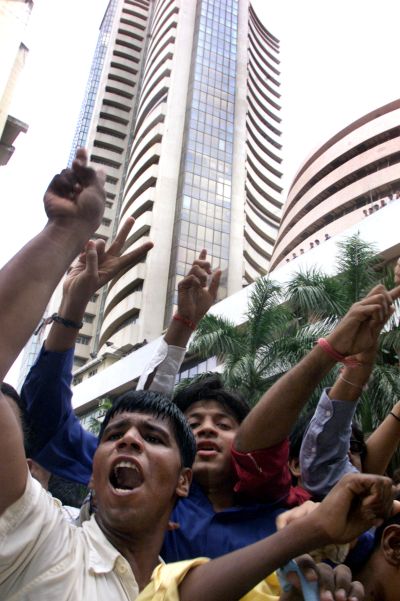
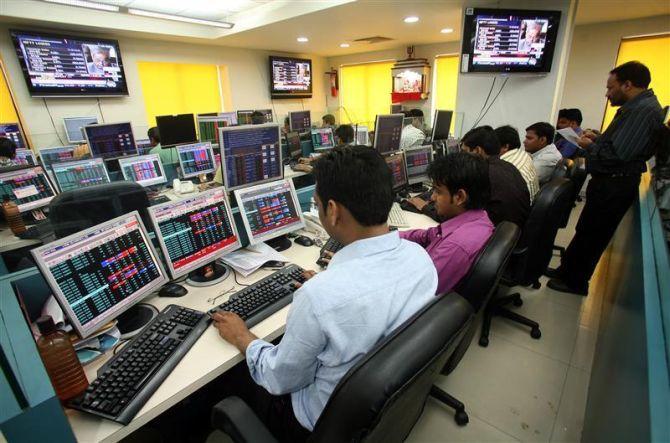
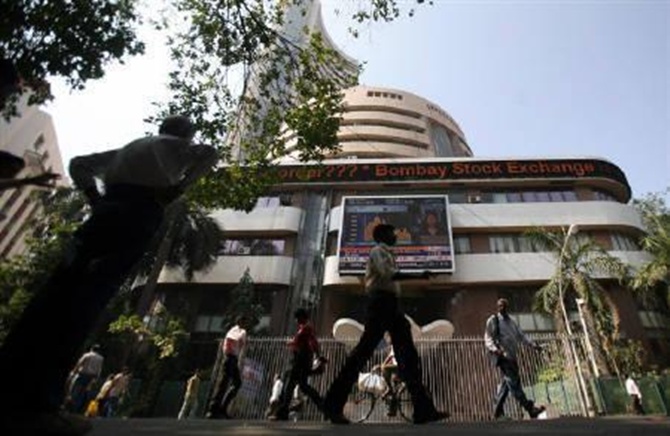
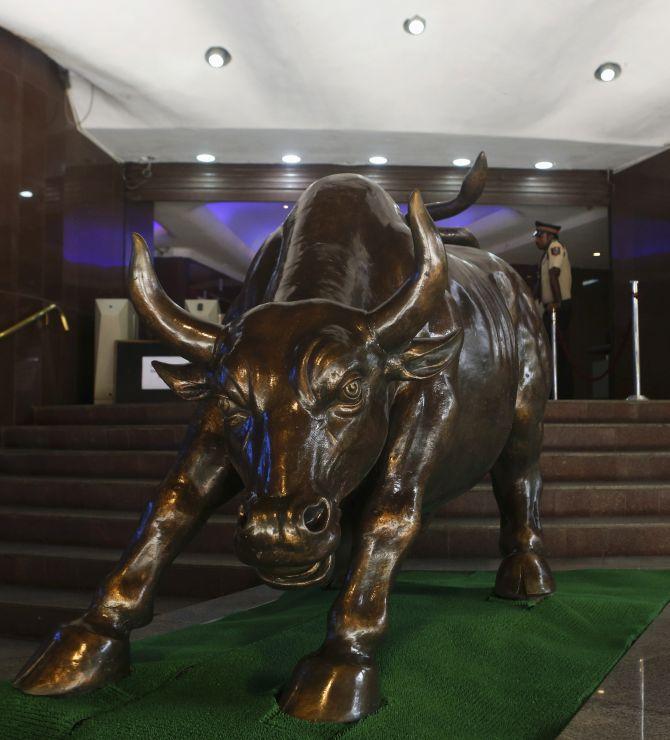
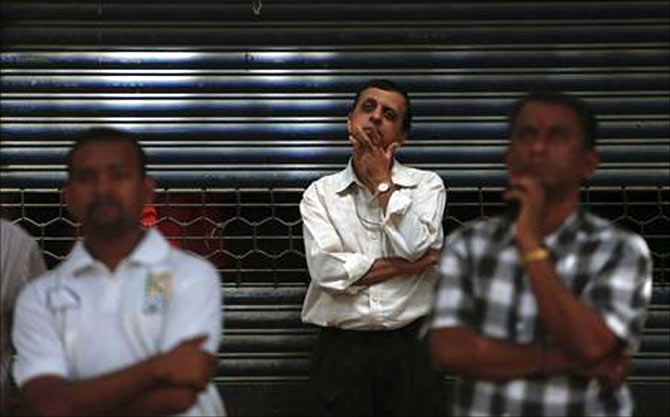

article